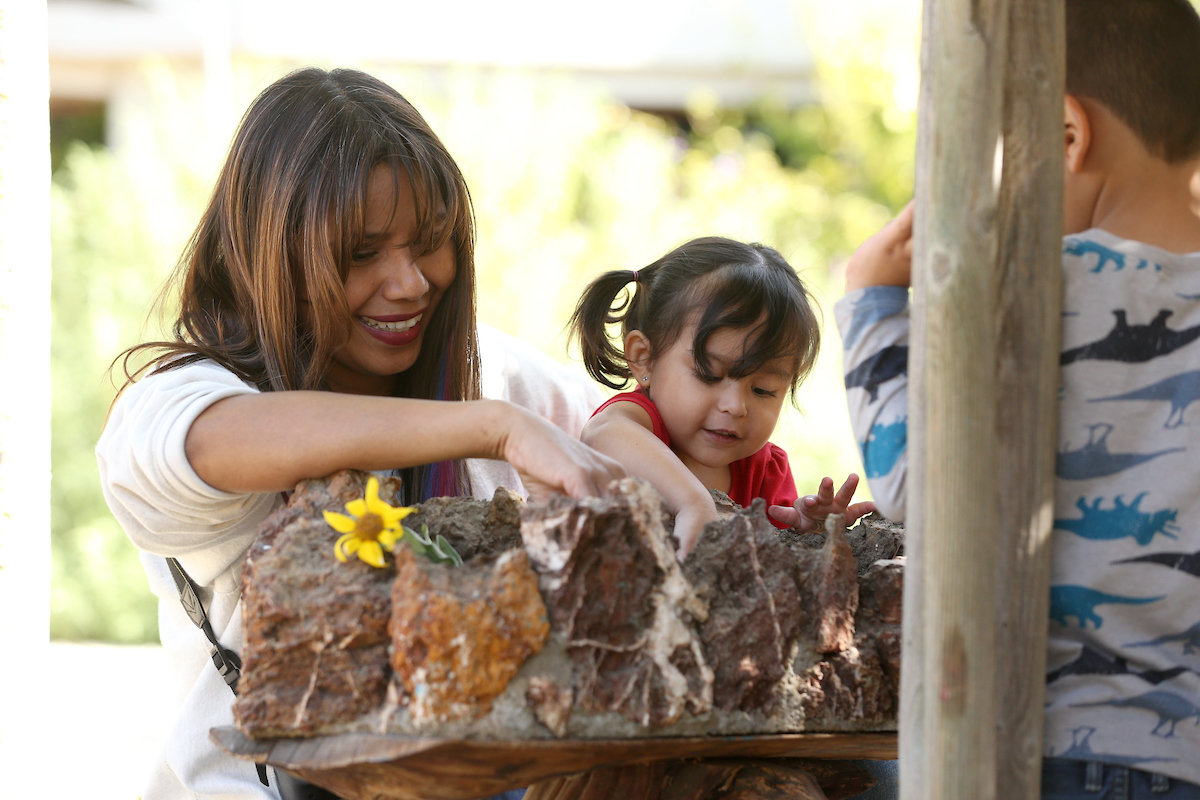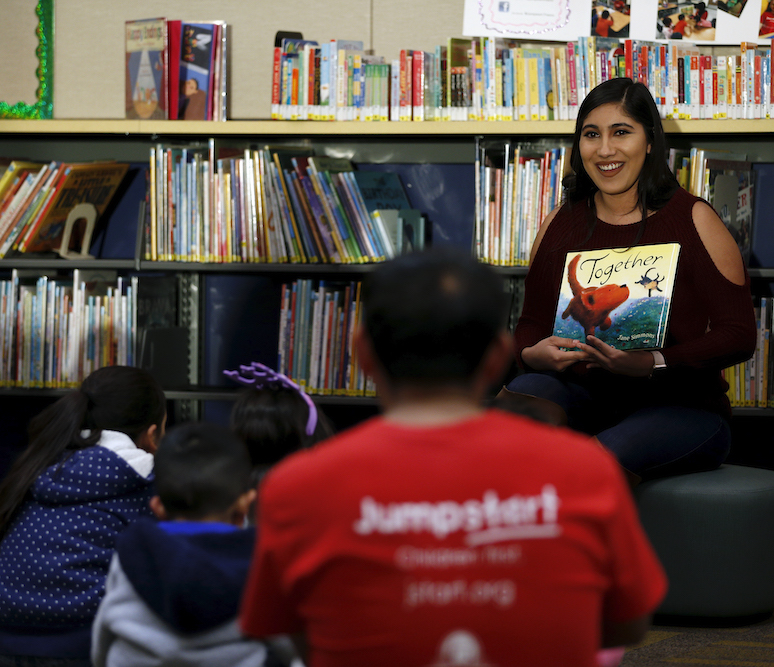Credential Programs
Fresno State Bilingual Authorization Program (BAP) for MS/DUAL/ED
The Fresno State Bilingual Authorization Program (BAP) embraces and honors the bi/plurilingualism and bi/pluriculturalism of preK-12 children and families, pre-service teachers, teacher candidates, and in-service teachers in California’s Central Valley. We adopt a grow your own approach to filling the increasing need in our region for future bilingual/dual immersion teachers by recruiting, developing, and retaining teachers from the richly diverse communities of the Central Valley. The BAP approaches the preparation of future teachers from a world languages/dialects and translanguaging perspective that represents cutting-edge research on multilingual and emergent bilingual students. We affirm, validate, and centralize anti-racist, culturally and linguistically sustaining, critical pedagogies, and prepare teacher candidates that embody this same stance. The BAP offers both Spanish and Hmong pathways for candidates pursuing their Multiple Subject (MS), Education Specialist (ED), or DUAL (MS+ED) Teaching Credential and practicing MS and ES teachers who have an English Learner Authorization to become authorized to teach in bilingual/dual immersion classrooms. The program is accredited by the California Commission on Teacher Credentialing and the Association for Advancing Quality in Educator Preparation (AAQEP).
Note: Single Subject (SS) Teaching Credential BAP not currently avaailble.
Bilingual Authorization in Spanish or Hmong for MS/Dual/ED
The Fresno State Spanish/Hmong Bilingual Authorization Program (BAP) trains future teachers with the skills needed to support linguistically and culturally diverse students with the following:
- Skills in primary language (Spanish or Hmong)
- Skills in Language Development (ELD) in grades K-8, including preschool
- Skills in Specially Designed Academic Instruction in English (SDAIE) strategies in self-contained classes
- Skills in building multicultural knowledge in order to serve culturally and linguistically diverse families and communities

Curriculum
In addition to the required coursework for the Multiple Subject or Education Specialist or a Dual (MS+ED) Teaching Credential, Bilingual Authorization candidates are to take the courses listed below for either a Bilingual Authorization in Spanish or Hmong.
Program Notes:
- All bilingual authorization candidates will need to complete a language proficiency interview prior to enrollment in BAP courses.
- The Bilingual Authorization (Spanish or Hmong) can not be awarded until one COMPLETES a Multiple Subject (MS) or Education Specialist (ED) or or a Dual (MS+ED) Teacher Credential Program.
- All BAP candidates must complete field placement requirements including native language instruction in addition to the completion of all bilingual authorization classes.
- Cal State Candidates candidates enrolled in the CalStateTeach Multiple Subject (MS) Teaching Credential Program can not partake in the BAP program while enrolled in their CalState Teach Program.
- Hmong CSET's can not be used in place of the Hmong BAP classes.
- Course substitutions for the Spanish bilingual authorization require Spanish BAP Coordinator approval, must meet current BAP TPE's requirements, be compabilble in content/pedagogy, grade no lower than a B, and be unit equivalent. Maximum units for course subsitutions and/or course transfers is limited to three (3) units including the CSET's.
- Bilingual authorization (Spanish and Hmong) courses are subject to CCTC and teacher credential program validation limitations.
- Upon completing all coursework and clinical practice hours, in order to apply for the Bilingual Authorization, individuals must have a valid Multiple Subject or Education Specialist credential that includes the English Learner Authorization (included within Fresno State’s credential programs).
Spanish
Effective Fall 2021, the Spanish bilingual authorization pathway became a three course program.
| Course | Units |
|---|---|
| CI 135: Sociopolitical/cultural Context of Latina/o/x Education | 3 |
| LEE 137: Spanish Language and Literacy | 3 |
|
LEE 136*: Teaching Content in Spanish (to be taken alongside "final" student teaching)/ (satisfies the BAP Spanish field experience as required by the CCTC) |
3 (plus BAP field experience) |
| Total Units 9 (plus BAP Spanish field experience) |
Teacher Credential Multiple Subject/Education Specialist Program Completion Timeline:
Phase 1: CI 135 and LEE 137
Phase 2: *LEE 136
*LEE 136 must be taken alongside student teaching and taken while enrolled in the Multiple Subject or Dual and/or Education Specialist Teacher Credential program in order to complete the BAP Spanish field placement bilingual authorizarion requirement, that applies to all BAP Spanish candidates.
Hmong
| Course | Units |
|---|---|
| HMONG 100 Intermediate Hmong Reading (Fall Only) | 3 |
| HMONG 101 Advanced Hmong Composition (Spring Only) | 3 |
| LEE 129 Hmong in Bilingual Schools (Fall Only: Prereq-Hmong 101) | 3 |
| LEE 135* Teaching Content in Hmong (to be taken alongside "final" student teaching). |
3 (plus BAP field experience) |
| ANTH 123 Peoples and Cultures of Southeast Asia (Fall Only) or ASAM 140 Hmong, Laotian and Cambodian American Experience (Spring Only) or LING 121 Hmong Language, Culture and Identity (Fall or Spring) |
3 |
| Total Units 15 (plus BAP Hmong field experience) |
*LEE 135 must be taken alongside student teaching and taken while enrolled in the Multiple Subject or Dual and/or Education Specialist Teacher Credential program in order to complete the BAP Hmong field placement bilingual authorizarion requirement, that applies to all BAP Hmong candidates.
Learn More
Education Specialist and Dual Credential Programs
Multiple Subject and Dual Credential Programs
Contact Us

In The News
Lessons of language
Celebrating bilingualism: A teacher’s passion for belonging
“In Mexico they would tell me one thing, in the United States I would hear another. And I was just like, ‘I'm not even from here or there. I'm right in between,’” says Veronica Solorio.
Veronica was born in Michoacan, Mexico, and growing up, she never stayed in one place for long. Her parents worked in agriculture and would constantly migrate to the United States, towing Veronica and her six siblings back and forth in their beloved family van...